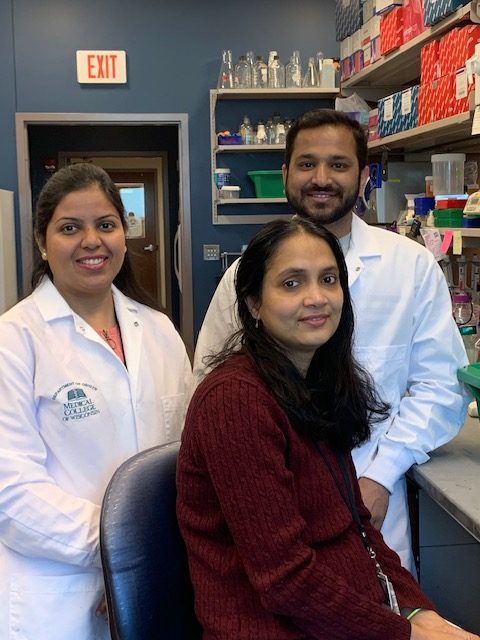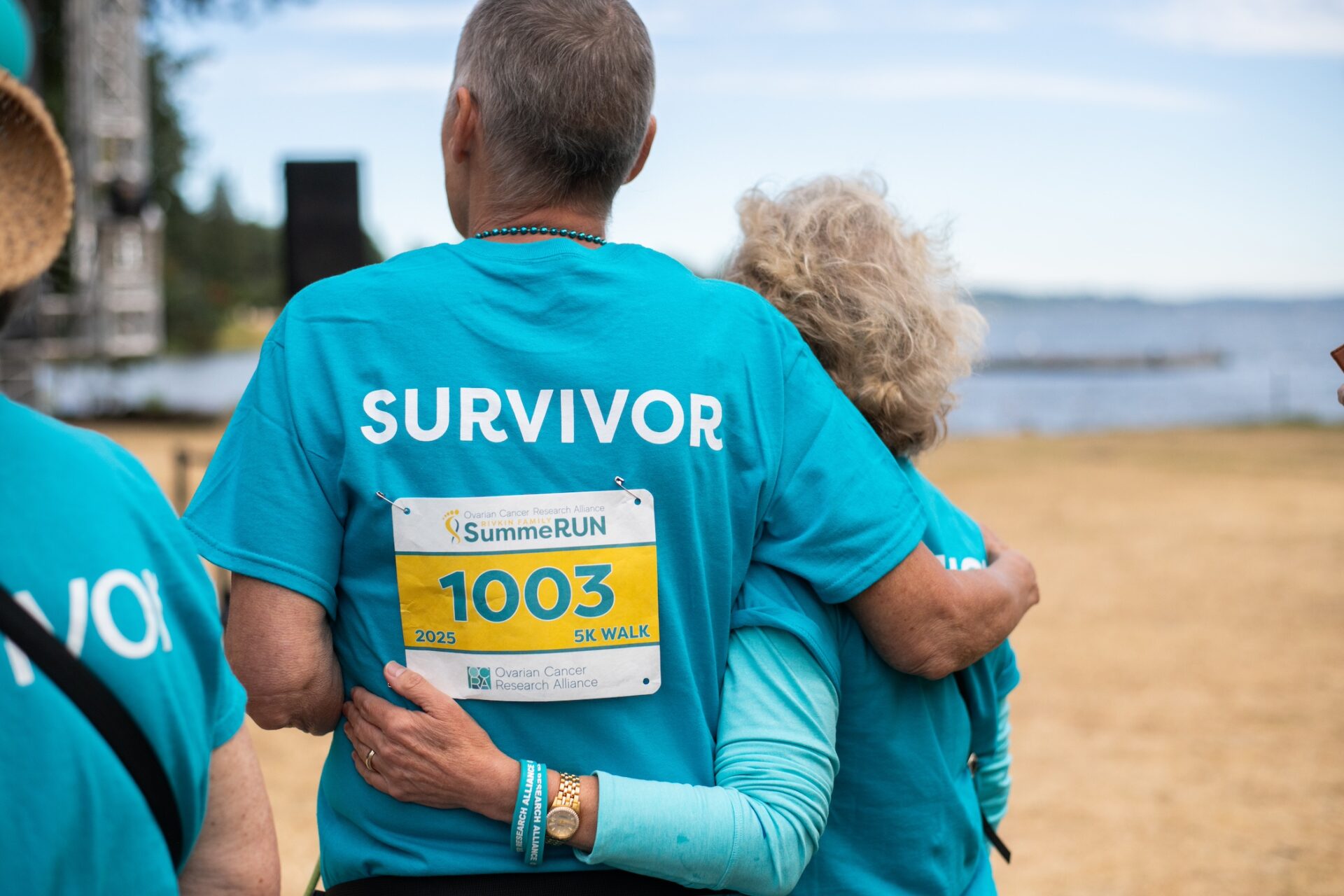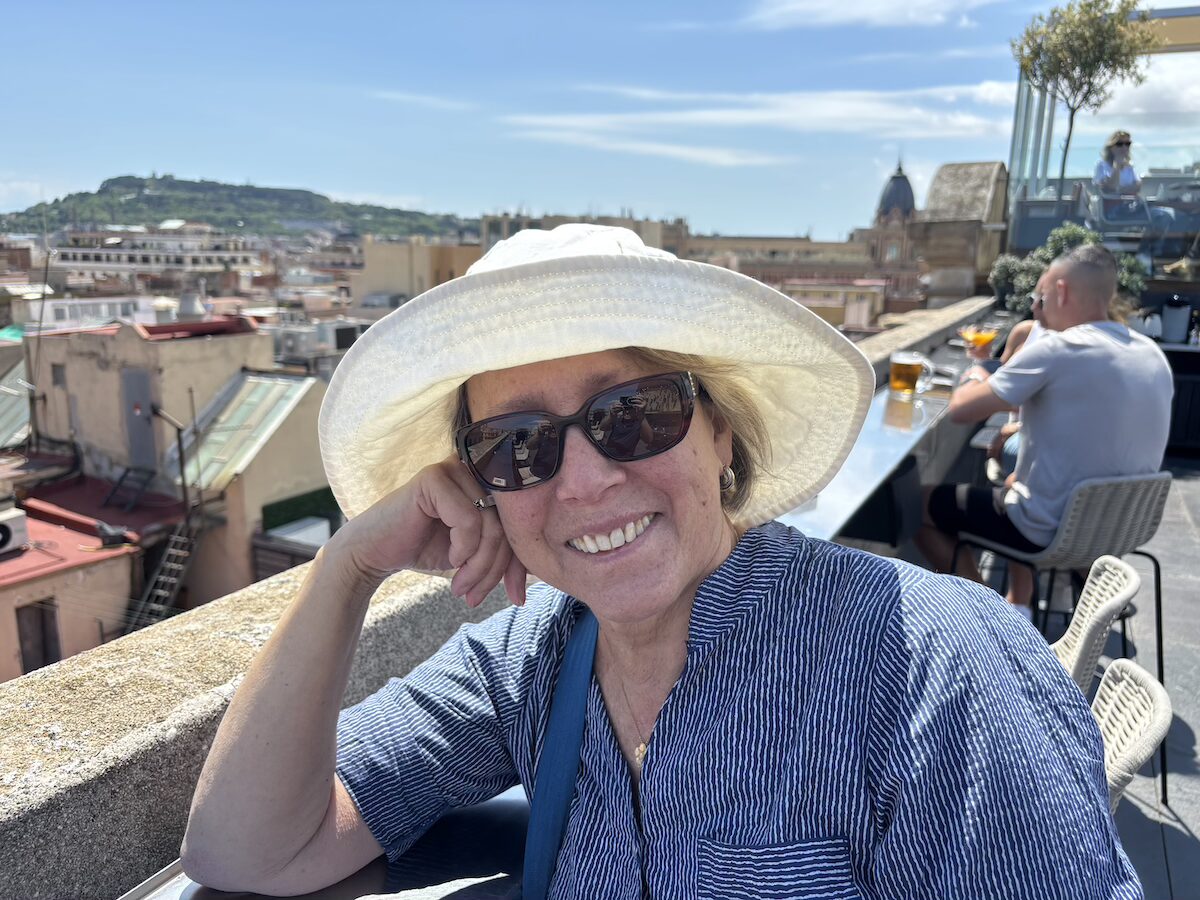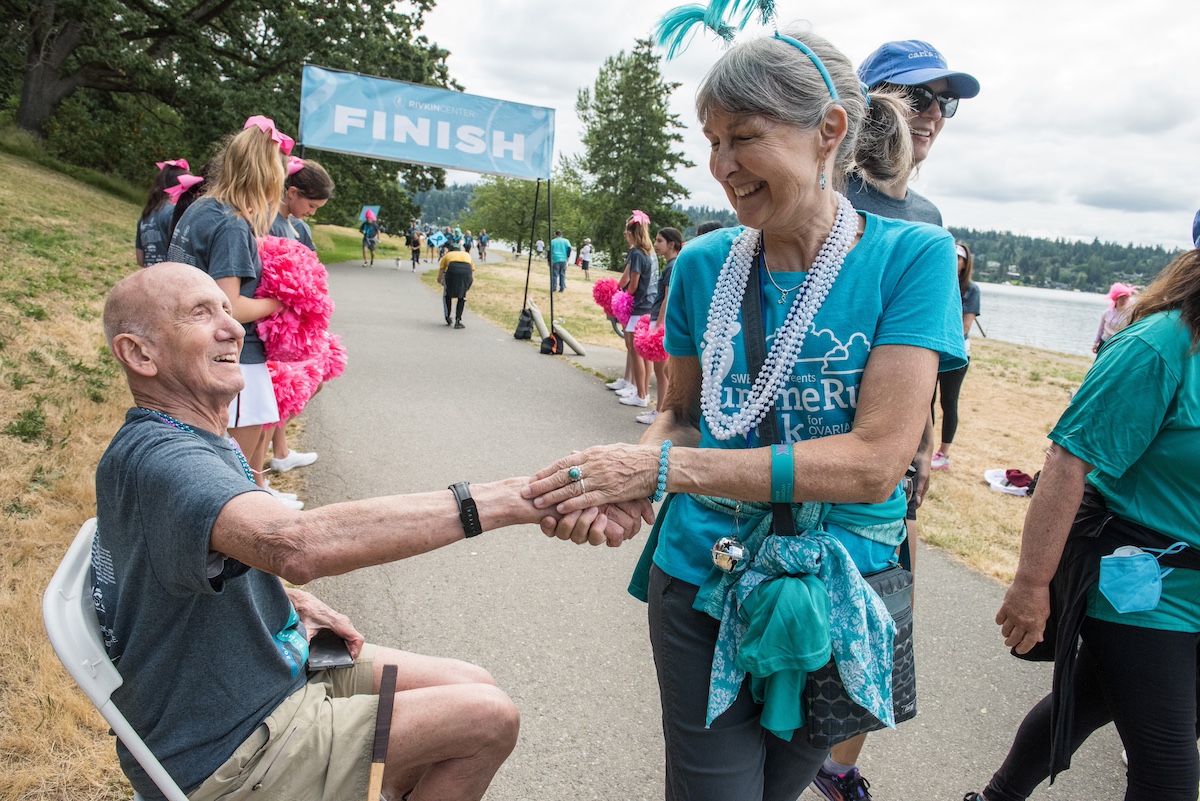There are many adjectives one can use to describe ovarian cancer: relentless, cruel, a monster. But Dr. Sunila Pradeep also finds it ironic.
“Women spend a lot of time and energy for the next generation. They are playing a major role in continuing life on earth. And then when many of them have fulfilled those biological duties,” Sunila said, “they get this disease of the reproductive system.”
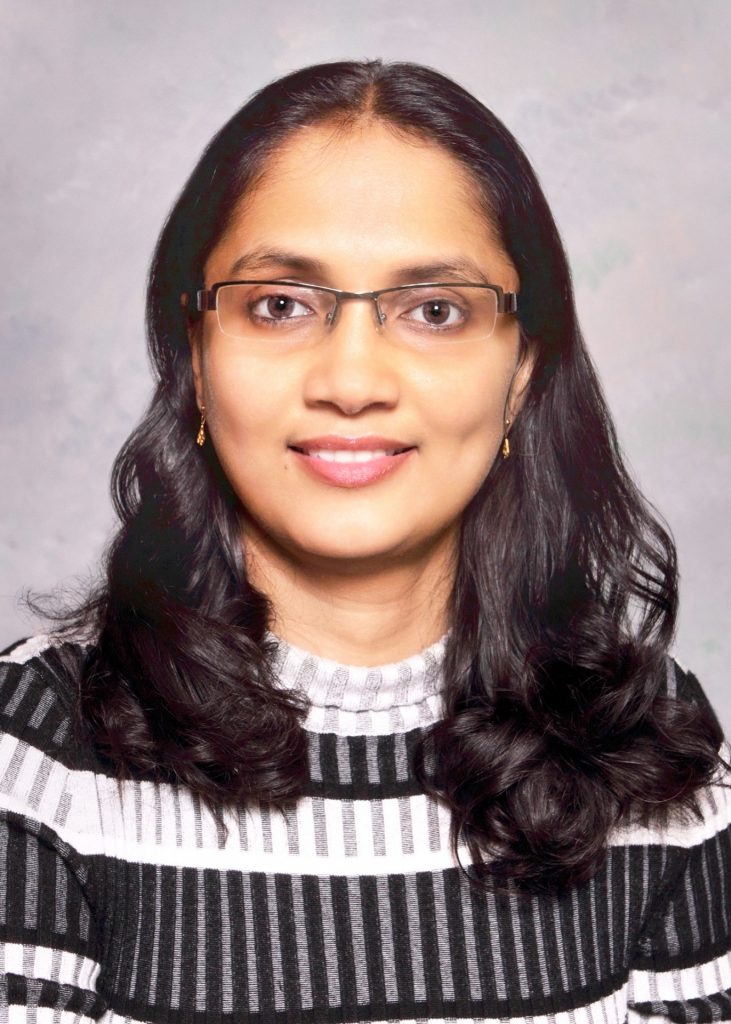
Sunila is an Assistant Professor in the Department of Gynecology Oncology at Medical College of Wisconsin. She did her Ph.D. at University of Calicut, Kerala, India, where she is from, before joining the Weitzman Institute in Israel, working on angiogenesis. She eventually moved to MD Anderson Cancer Center where she worked with her mentor—Dr. Anil Sood. “The amount of time he puts toward research and patient care is amazing,” Sunila said. “He says it’s his passion. Seeing him work fueled my enthusiasm for ovarian cancer research.”
Sunila is working very hard, examining why patients build up resistance to the maintenance drugs they take after surgery or chemotherapy. “The question we are asking is how can we overcome this resistance and prolong the patients’ life?”
Seeking to make a difference
Sunila has been drawn to science for as long as she can remember. She always got good scores in biosciences in school and has always been fascinated by the subject. She majored in microbiology in college, and then joined Amala Cancer Hospital and Research Center to complete project work and thesis work associated with her master’s program. She spent a lot of time with both women and children who were undergoing cancer treatment. She noticed that they came with a lot of hope, but they were suffering from side effects and the uncertainty of the outcome.
“I wanted to do something for the cancer patient,” Sunila said. “I decided to do my Ph.D. in immunology so that I can make a difference in their lives.”
OCRA made a “milestone change” in Sunila’s career, as she put it. The Liz Tilberis Award, which she received in 2017, was her first grant and culminated in her first tenure-track faculty position in the Department of Obstetrics and Gynecology at the Medical College of Wisconsin. She recently got an extension to this award, which is allowing Sunila to focus on developing strategies to overcome immune suppression and drug resistance.
Motivated by curiosity
In the daily grind of facing setbacks when trying to make a breakthrough, it’s only natural for motivation to wane. And there are some days that Sunila wonders if she should stay in the field. But the more she reads, and the more patients she sees in the process of collecting samples, she feels buoyed. “There’s still a gap in our knowledge,” Sunlia said. “We’ve discovered a lot, the mechanics behind it all, and every day, new drugs emerge. There are still many entities to be explored to improve patients’ quality of life.”
It’s this unflagging curiosity that keeps Sunila going. Not just within her, but the thirst for knowledge she finds in the wider community. She sees cancer advocates in different professions – architects, lawyers, fundraisers – some who are survivors and some who don’t even have the disease, and yet are making a lot of effort to understand the latest developments in research. “I see how involved they are in this work and it keeps me motivated.”
“I don’t know what’s going to happen in 20 years,” she said. “I could get the disease myself. We shouldn’t look back and think ‘I could have done better in science.’ Whatever I can do, I will have to do it right now.”
It’s this belief in hard work – progress that may not reveal itself now, but in generations to come – that is at the core of Sunila’s passion. She recognizes that you can be successful if you do the hard work. “Everyone knows that,” she said. “But the key thing is to never stop or dilute your efforts, even when you succeed, or think you are close to succeeding. That’s how you’ll make major discoveries.”
